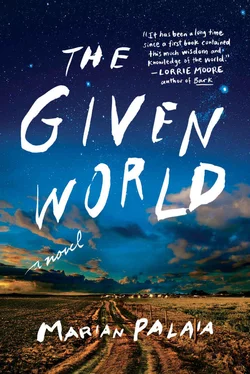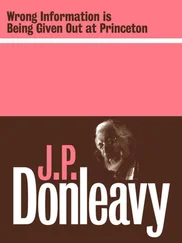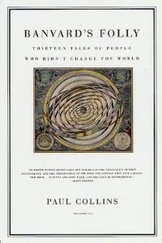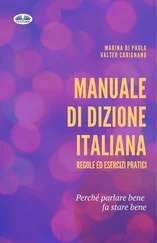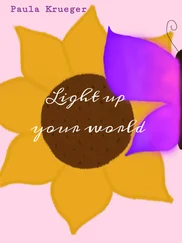I made it through school, barely, knowing that once it was over, I’d be gone. I left my parents in a parking lot in Havre: my mom waving, some hidden force pulling her away from the bus steps; Dad awkward and incongruous with the baby’s carriage, in the background, where he liked to stay. I wanted to put my bag down and go back for another hug, tell him not to worry, I’d figure it out. Like he said. Mom had that distant look, as if she were the one leaving. And the baby, well. I couldn’t see him. Dad could have had a mess of those boney cats in that carriage. With their eyes closed, meowing and growling like they do. Bye kittens. Good night moon.
In Missoula, I got my job and rented a little apartment over the Laundromat, where when winter came the steam would rise into my room, and the sweet smell of the soap would cover over the stink of the pulp mill down the road. Still, there was nothing to be done about the smoke from its stacks, which would combine with the smoke from people’s woodstoves and the fog that was a natural consequence of the inversion layer in that valley, and sometimes we wouldn’t see the sun for weeks at a time. I’d drive out of town then, in any direction.
For a while that one winter I had company: another car I came up on one hazy day outside of Frenchtown, and it looked a lot like mine. There had been approximately no other traffic on the road in either direction since I’d gone by the Flathead cutoff, aside from a few log trucks and one kamikaze U-Haul pilot who was having a tough time staying off the median. I got around him as fast as I could, swerving at the last second while he played What’s My Lane? , and my imagination previewed for me what might happen if I didn’t swerve — if I hit him and lost control; or cut the wheel and cut back too sharply and spun out. I saw the marks my tires would leave in a spiral as me and my car left the road.
The other Mustang might have been doctored up at the same body shop as mine. It had a similar paint job, holes in the top, duct tape. It wasn’t an exact match, but close enough I thought I ought to get up alongside for a look. The guy driving had long, straight brown hair in a ponytail; a mustache; and aviator shades he was wearing even at dusk, with yellow lenses.
The first time we drove together for a while, west on the interstate, north and south of the river, crossing it every now and again like you do on that stretch. On the straightaways we were doing ninety, ninety-five. After a bit, though, I slowed up to let him get ahead, feeling silly out there in the fast lane, not passing anything. I had my radio tuned to static from Missoula, breaking every once in a while to let through snatches of country music — about love, about broken hearts. I’d always figured if I could hear a whole song all at once it might make sense, but the antenna on my car was broken at the base, splinted with Popsicle sticks and electrical tape, and I had not gotten around to replacing it yet. So I filled in the blanks myself, with words I could understand, about cars, motors, carburetors, timing chains.
At Tarkio I turned around, using my signal to say, See you later, before I got off the highway. He flashed his brake lights and then he was gone, leaving me and my car, in some unbidden, imaginary outcome, to bump down the embankment, over the riprap and into the river, to float all the way to Lake Pend Oreille and the Columbia or sink and give the fish a place to hide. Or to drive straight up the slope on the other side, to a point too vertical, where the weight of the engine would pull us backward, and we’d tumble end over end to the bottom — possibly across the road and into the river anyway. I let my mind have its fun and its carnage, but I was seeing that other black car too, flying along toward the coast in the darkness, with a radio that probably worked. I kept my car on the highway. I headed toward home and bed and tumbling dryers; the smothering smell of other people’s sheets and towels and shirts and jeans.
I stopped at the bar where I knew Leo would be nursing a beer and playing the poker machine, in a vapor mist of cigarette smoke and deep-fried chicken. I ordered my own beer and sat on a bar stool next to him, watching him draw electric cards, always keeping jacks, eights, and aces when they came up. We sat quiet except for the beeping of the machine: the excited noises it made whether he chose right or didn’t, whether the hand turned out a full house or a pair of deuces, or all but the last card of a straight flush. After a while I said good night to him and the bartender, walked down the street and up to my room, where I took off my clothes and curled around myself in the exact center of the bed, my head under the covers, and slept in one position all night. In the morning, for a few long waking seconds, I had no idea where I was.
I saw that other car fairly often the next few months: up the Bitterroot, in the Mission Valley, west of Beavertail. We were all over the place. I’d come up on him, or he’d appear in my rearview mirror and get up beside me, wave, give me a slightly lopsided smile, and I’d drift back and follow until my internal compass swung me around and guided me home.
Mornings I was generally up at five, at the station by six, in my uniform: dark blue pants and pale blue shirt with my name embroidered in orange over the pocket — that over a layer of long johns, my brother’s old horse-blanket-lined jean jacket on top of it all. Leo would already be there, with the propane stove in the garage fired up to take the edge off the chill. The edge was about all it ever took off, and I’d wonder what it might be like to be warm more than four months a year. I’d conjure up a palm tree. A beach. Add the ocean: a body of water without any discernible other side, deep and full of all kinds of slippery things, and whales. It appeared in my mind like a child’s drawing: the waves a series of inverted V ’s across the middle of the page; the whales just below and ready to breach; the sun a yellow ball in the top left-hand corner; two distinct white clouds to break up all that monotonously blue sky.
Most days I’d be off work by two or three, and one freezing and particularly socked-in day in early March I went looking for sunshine. I knew I could find it on the other side of town, east where the inversion (depending on which way you were going) began or ended, like a wall of fog, like a magic trick of the gods, a wall you could drive through and disappear.
I drove out of the murk into a sharp light that nearly blinded me. It felt even colder than it had in the fog, and the air coming through the gap above my windshield blew across my face and practically froze a section solid, from the bridge of my nose to the middle of my forehead. I had the heater blasting, which did not do much but keep my feet, in pac boots and wool socks, from turning into little blocks of ice.
My eyes finally adjusted to the light at Bonner, where the Champion mill on my left was spewing smoke and sawdust straight into the air, and it seemed to stay, motionless, caught in time or an invisible element that defied gravity or dispersion. I drove as far as Rock Creek, circling down off the highway to the north side of the river, and along the frontage road to where it dead-ended at a woods of scrappy pine and brush.
I pulled a tiny roach out of my pocket, smoked it and listened to the radio: an oldies station coming in clear as a bell from Rock Springs, Wyoming. They played songs I’d heard from behind my brother’s bedroom door as a child, and sometimes, if he didn’t have a girl in there, he’d let me in, take me by the hands and dance with me, spin me around the room to “Rave On,” “Jailhouse Rock,” “Shout,” until I was so dizzy and laughing so hard I thought I was going to pass out. Then he’d let me down easy to sit on the floor, and he’d sit down there next to me, and we’d read or draw or talk about stuff until Mom called us downstairs for dinner.
Читать дальше
